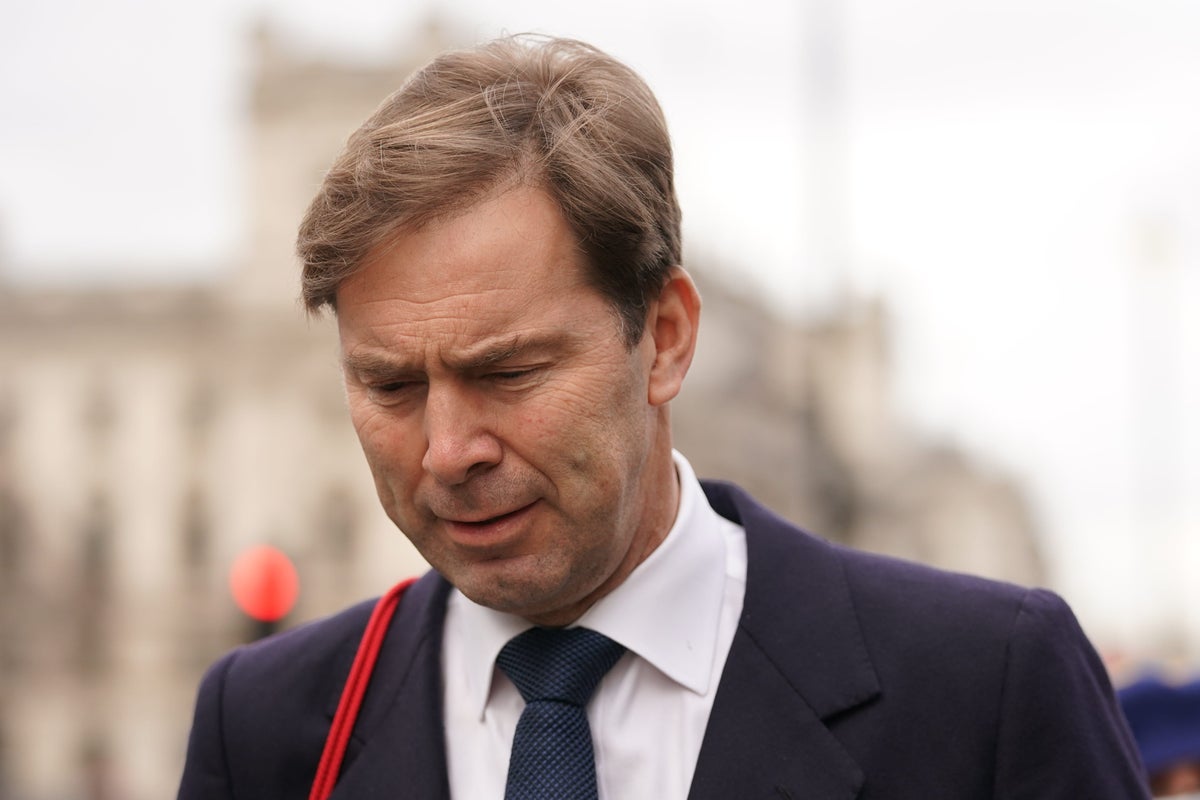
Rishi Sunak and Jeremy Hunt have been urged to boost defence spending to cope with a new Cold War involving both China and Russia.
The chairman of the Commons Defence Committee, Tobias Ellwood, said the UK was still operating on a peacetime budget during a “new era of insecurity”.
His comments followed reports some Nato allies had concerns about the UK’s military readiness and that Defence Secretary Ben Wallace is lobbying for extra cash.
Tory MP Mr Ellwood warned that stockpiles of ammunition were running low, the army had too few tanks and the Royal Navy was short of ships.
Mr Ellwood was speaking after The Mail on Sunday newspaper reported that the UK would not be ready to take over from Germany as Nato’s highest readiness force.
The newspaper said reports in the German media, backed up by Ministry of Defence sources in the UK, claim that Nato has asked Berlin to remain in charge for an extra year because Britain cannot spare the 5,000 personnel required.
The Ministry of Defence said the reports were “completely untrue” and the 7th Infantry Brigade is being prepared to be Nato’s very high readiness joint task force (VJTF) next year.
“The UK is recognised as a leading force, ready to honour our commitments,” a spokesman said.
But Mr Ellwood told GB News the UK was “poorly defended” as a result of cuts since the end of the Cold War.
“Back in 1990, at the end of the Cold War, we had over 900 battle tanks, and we’ve cut that down now to about 148.
“Frigates and destroyers – we had over 50 of those protecting our sea lanes around the world. We embrace globalisation, so we need to continue to protect those.
“You can’t do that with just 18 frigates and destroyers.
“We had 36 squadrons of fast jets, we’re down to about seven today.
“Really we’re still on a peacetime budget, we’ve moved into a new era of insecurity.
“I’ll make it really clear: we’re still in denial. Another Cold War has started, not on one front but on two fronts with Russia and China.
“My concern is that Russia and China are now going to coalesce and merge together, knowing that they can exploit the international rules-based order unless we stand up.”
The commitment to spend at least 2% of gross domestic product (GDP) – a measure of the size of the economy – should be increased to 3%, he said.
“I visited Belfast last week with the Defence Select Committee. The Starstreak anti-air missile – quite incredible – we’d actually stopped making these a few years ago, we only have 60 of these left in our stockpiles.
“We need to start rekindling the assembly lines to make the equipment that’s needed for the threats that we now face, that are coming fast over the horizon.
“And we really are not in a position, we’re so poorly defended now that even Germany is saying that we can’t take on our Nato responsibilities.”
The Sunday Times reported that Mr Wallace is demanding up to an extra £10 billion over the next two years – 2023-24 and 2024-25 – just to fulfil the MoD’s commitments, keep pace with inflation and meet the higher funding for Nato and Ukraine. That would be a rise over two years of about 10%.
The Defence Secretary warned earlier this month that spending could need to increase for decades as a result of global insecurity.
He also confirmed he had been holding talks with Chancellor Mr Hunt ahead of March’s Budget to discuss short-term pressures, including inflation.
Foreign Office minister Andrew Mitchell said the Chancellor had already made significant defence spending commitments in the autumn statement in November.
“We are the leading Nato country in Europe and I think we will see in the Integrated Review refresh, which is likely to be announced in March, that Britain is absolutely focused both on stopping the Russian aggression and supporting the Ukrainians, and making sure that our defence is fit for purpose,” he told Sky News.







